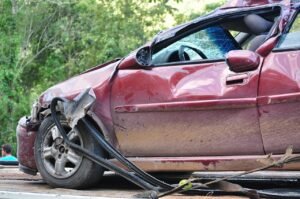
Freelancing offers freedom and flexibility, but it also introduces unique challenges, especially when it comes to protecting your business assets. One crucial aspect that often gets overlooked is auto insurance. Whether you’re using your vehicle to meet clients, transport equipment, or simply commute between home and co-working spaces, understanding your auto insurance needs as a freelancer is essential for safeguarding your livelihood. This comprehensive guide will walk you through everything you need to know about auto insurance for freelancers, ensuring you’re adequately covered.
Understanding the Risks: Why Freelancers Need Specialized Auto Insurance
Common Risks Faced by Freelancers Using Vehicles
Freelancers who use their vehicles for business face a higher risk profile than regular commuters. Here are some common risks:
- Increased Mileage: Driving more often and for longer distances increases the likelihood of accidents.
- Carrying Business Equipment: Transporting valuable equipment makes your vehicle a target for theft and exposes you to potential liability if that equipment causes damage or injury.
- Using the Vehicle for Client Meetings: If you’re meeting clients, you’re essentially operating a mobile office, exposing you to business-related risks.
- Distracted Driving: Freelancers are often juggling work tasks and driving, which can lead to distracted driving and accidents.
- Example: Imagine a freelance photographer driving to a wedding with thousands of dollars worth of equipment in the back. An accident could damage the equipment, delay the event, and create potential legal liabilities.
Why Personal Auto Insurance Might Not Be Enough
Personal auto insurance policies are designed for personal use, not for commercial activities. Using your vehicle for business purposes could void your policy, leaving you financially vulnerable in case of an accident.
- Policy Exclusions: Most personal auto insurance policies contain exclusions for commercial use.
- Claim Denials: If you’re involved in an accident while conducting business, your insurance company may deny your claim if they determine you were using the vehicle for commercial purposes.
- Liability Coverage Gaps: Personal policies often have lower liability limits, which may not be sufficient to cover potential business-related liabilities.
- Example: A freelance graphic designer uses their car to deliver marketing materials to a client. They get into an accident on the way. The insurance company investigates and finds out they were using the vehicle for commercial purposes. Their claim is denied, leaving them to pay for the damages out-of-pocket.
Types of Auto Insurance for Freelancers
Personal Auto Insurance with a Business Use Endorsement
This option involves adding a business use endorsement to your existing personal auto insurance policy. This endorsement extends coverage to include some business-related activities.
- Benefits:
Simple and cost-effective if your business use is minimal.
Extends coverage beyond personal use to include limited business activities.
- Limitations:
May not cover all business-related risks.
May not be suitable for freelancers with extensive business use.
- Best For: Freelancers who occasionally use their vehicles for business-related tasks, such as visiting clients or transporting small amounts of equipment.
- Example: A freelance writer who occasionally drives to the library or a coffee shop to work might find this sufficient.
Commercial Auto Insurance
Commercial auto insurance is specifically designed for businesses. It provides comprehensive coverage for vehicles used for commercial purposes.
- Benefits:
Higher liability limits for business-related accidents.
Covers a wider range of business activities.
Protects against potential lawsuits and legal expenses.
Coverage for business equipment and tools.
- Limitations:
Generally more expensive than personal auto insurance.
May require more paperwork and documentation.
- Best For: Freelancers who heavily rely on their vehicles for business, such as delivery drivers, contractors, or those transporting valuable equipment.
- Example: A freelance contractor who drives a truck to various job sites with expensive tools and equipment would benefit greatly from commercial auto insurance.
Hired and Non-Owned Auto Insurance (HNOA)
This coverage protects you when you’re using vehicles you don’t own, such as rentals or employee vehicles (if you have employees). It provides liability coverage if you’re responsible for an accident while using these vehicles for business purposes.
- Benefits:
Covers liability when using rental cars or leased vehicles.
Protects against lawsuits and legal expenses related to accidents in non-owned vehicles.
- Limitations:
Doesn’t cover damage to the vehicle itself.
Typically only covers liability, not comprehensive or collision.
- Best For: Freelancers who frequently rent cars for business travel or use employee-owned vehicles for work-related tasks.
- Example: A freelance consultant who travels frequently and rents cars in different cities would need HNOA insurance for liability protection.
Factors Affecting Auto Insurance Premiums for Freelancers
Vehicle Type and Usage
The type of vehicle you drive and how you use it significantly impact your auto insurance premiums.
- Vehicle Type: Larger vehicles, such as trucks and vans, generally have higher premiums due to their higher repair costs and potential for causing more damage in accidents.
- Business Use: The more you use your vehicle for business, the higher your premiums will be.
- Mileage: Higher mileage increases the risk of accidents and therefore higher premiums.
- Driving History: A clean driving record will result in lower premiums. Tickets, accidents, and other violations will increase your rates.
- Example: A freelancer driving a small, fuel-efficient car with limited business use will likely pay less than a freelancer driving a large truck with extensive business use.
Coverage Limits and Deductibles
The amount of coverage you choose and the deductible you select also affect your premiums.
- Coverage Limits: Higher coverage limits provide greater financial protection but come with higher premiums.
- Deductibles: A higher deductible means you’ll pay more out-of-pocket in the event of an accident, but your premiums will be lower.
- Example: Choosing a $500 deductible will result in higher premiums than choosing a $1000 deductible, but you’ll pay less out-of-pocket if you have to file a claim.
Location and Industry
Your location and the type of freelancing work you do also impact your insurance rates.
- Location: Insurance rates vary by state and even by ZIP code. Urban areas with higher traffic density typically have higher rates.
- Industry: Some freelancing industries are considered higher risk than others. For example, delivery drivers might pay more than freelance writers.
- Example: A freelancer living in a densely populated city with a high crime rate will likely pay more for auto insurance than a freelancer living in a rural area with a low crime rate.
Tips for Saving Money on Auto Insurance
Shop Around and Compare Quotes
Don’t settle for the first quote you receive. Shop around and compare quotes from multiple insurance companies to find the best rates.
- Online Comparison Tools: Use online comparison tools to quickly compare quotes from multiple insurers.
- Independent Insurance Agents: Work with an independent insurance agent who can shop around on your behalf and find the best coverage for your needs.
- Example: Spend an hour researching and comparing quotes from at least three different insurance companies. You might be surprised at the price differences.
Increase Your Deductible
Increasing your deductible can significantly lower your premiums. Just make sure you can afford to pay the higher deductible if you have to file a claim.
- Consider Your Risk Tolerance: Evaluate your financial situation and risk tolerance before increasing your deductible.
- Balance Savings and Risk: Find a balance between savings and risk that works for you.
- Example: If you can comfortably afford to pay a $1000 deductible, consider increasing it from $500 to save on your premiums.
Bundle Your Insurance Policies
Many insurance companies offer discounts if you bundle your auto insurance with other policies, such as home insurance or business insurance.
- Multi-Policy Discount: Ask your insurance company about multi-policy discounts.
- Combine Personal and Business Policies: Consider combining your personal and business insurance policies with the same insurer for potential savings.
- Example: If you also need business liability insurance, consider bundling it with your commercial auto insurance to save money.
Maintain a Clean Driving Record
A clean driving record is the best way to keep your auto insurance premiums low.
- Drive Safely: Follow traffic laws and avoid accidents and violations.
- Defensive Driving Courses: Consider taking a defensive driving course to improve your driving skills and potentially earn a discount on your insurance.
- Example: Avoid speeding, texting while driving, and other risky behaviors to maintain a clean driving record and keep your premiums low.
Conclusion
Auto insurance is a critical consideration for freelancers who use their vehicles for business purposes. Understanding the risks, choosing the right type of coverage, and implementing cost-saving strategies can help you protect your livelihood and avoid potential financial setbacks. By carefully evaluating your needs and shopping around for the best rates, you can ensure you have adequate coverage without breaking the bank. Don’t underestimate the importance of proper auto insurance – it’s an investment in your business and your future.







